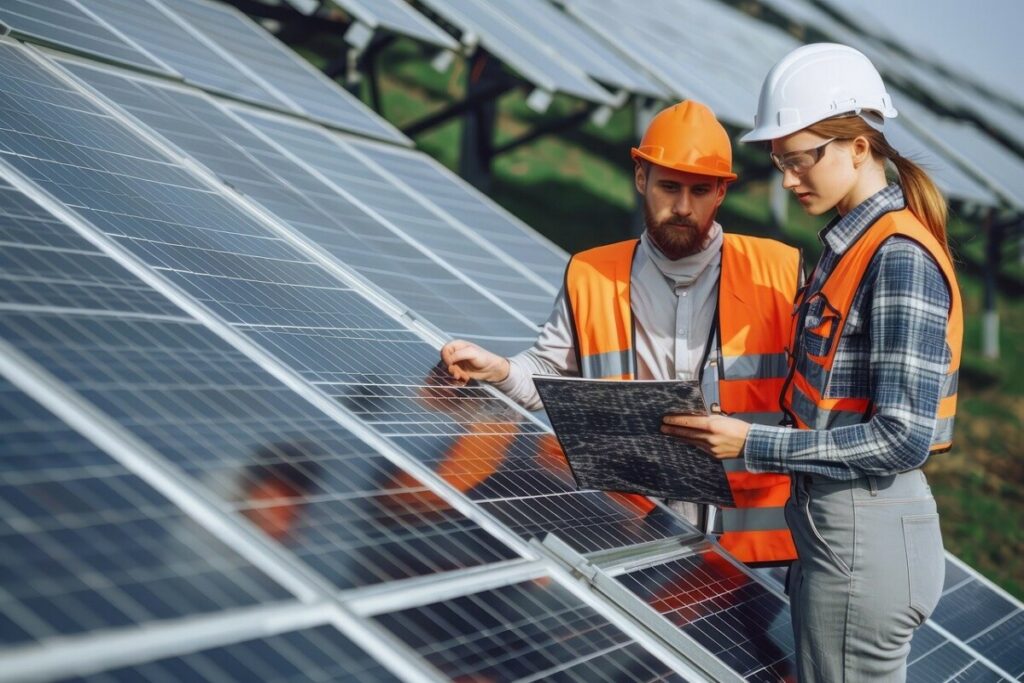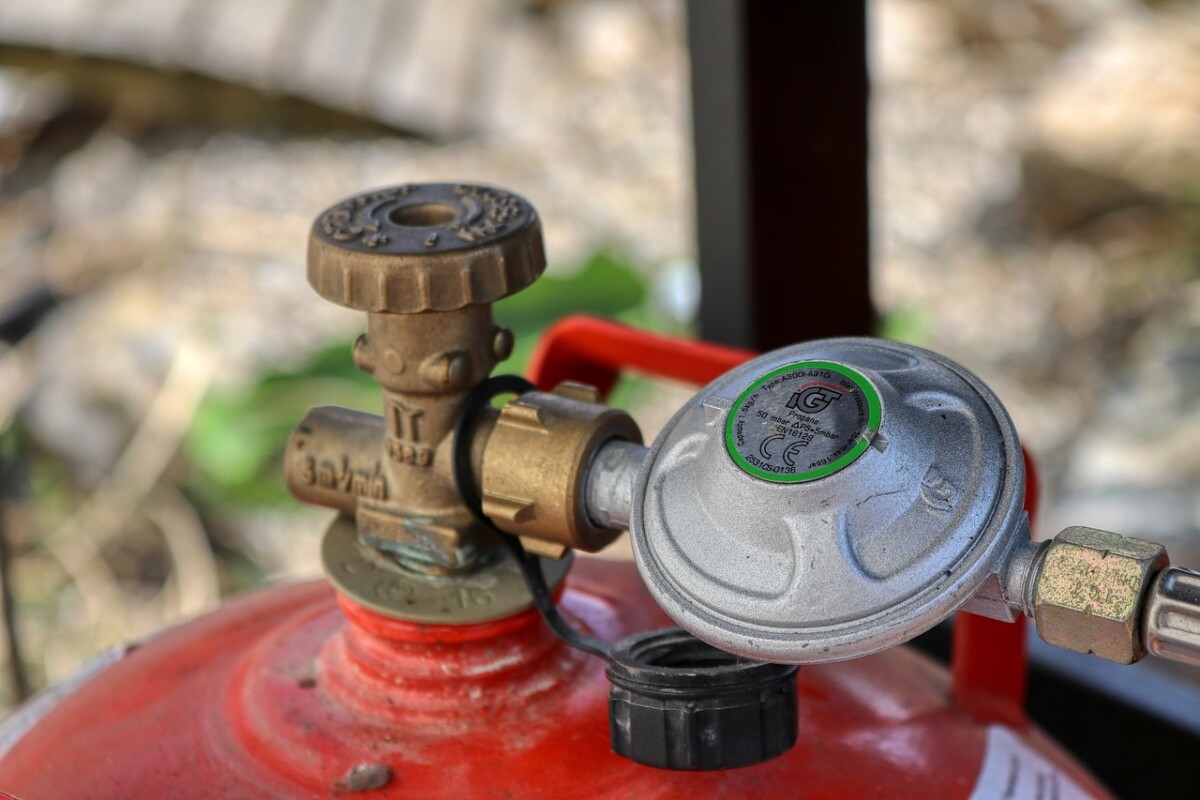Is Propane a Greenhouse Gas?
Firstly in today’s environmentally conscious world, the conversation around greenhouse gases and their impact on climate change is more pertinent than ever. Indeed among various energy sources scrutinized for their environmental footprint, propane—a clean-burning fuel widely used in heating systems, appliances, and vehicles—often comes under the spotlight. Thus, the question, “Is propane a greenhouse gas?” prompts a nuanced exploration of its role in our quest for a sustainable future.
Is Propane a Greenhouse Gas?
Understanding Propane’s Environmental Footprint
Is Propane Contributing to Climate Change?
Propane, a byproduct of natural gas processing and crude oil refining is a fossil fuel. However, when it comes to greenhouse gases and their contributions to global warming, propane presents a case that’s significantly different from conventional fossil fuels like coal and diesel fuel.
To accurately assess its impact, it’s essential to delve into the specifics of how propane is produced. And used, and its emissions profile.
Propane vs. Other Greenhouse Gases
The primary greenhouse gases contributing to the greenhouse effect and climate change include carbon dioxide (CO2), methane (CH4), nitrous oxide (N2O), and fluorinated gases. Propane does emit CO2 when combusted. But at a lower rate compared to many conventional fuels, making its carbon footprint comparatively smaller.
Is Propane a Greenhouse Gas?

Propane’s Role in Reducing Emissions
Less Carbon Dioxide, Fewer Greenhouse Gas Emissions
One of the compelling attributes of propane is its lower carbon content. Burning propane releases less carbon dioxide than most other fossil fuels, positioning it as a cleaner energy alternative.
In fact according to the Environmental Protection Agency (EPA), propane combustion produces fewer greenhouse gas emissions. Contributing to efforts aimed at mitigating climate change’s impacts.
Propane: A Step Towards Cleaner Air
Apart from its greenhouse gas emissions profile, propane boasts of producing significantly lower amounts of particulate matter. Sulfur dioxide, nitrogen oxides, and virtually no mercury. These pollutants are associated with air quality issues and have direct implications on human health and the environment.
The Clean Air Act recognizes propane as a clean fuel. Which underscores its benefits in reducing air pollution and protecting public health.
Is Propane a Greenhouse Gas: Frequently Asked Questions
What makes propane a clean-burning fuel?
Propane burns cleaner than many other fossil fuels due to its lower carbon content. This results in fewer emissions of carbon dioxide, particulate matter, and harmful pollutants.
Can propane be considered a green fuel?
While propane is a fossil fuel, its environmental footprint is smaller than many conventional fuels. Its efficient combustion, lower emissions, and role in reducing air pollution contribute to its classification as a cleaner, greener fuel option.
How does propane compare to renewable energy sources?
Propane does not match the sustainability of renewable energy sources like solar or wind power. However, it serves as a more environmentally friendly alternative in areas where renewables are not feasible. Or as a transitional fuel towards a lower carbon future.
Is Propane a Greenhouse Gas Conclusion
As we navigate through the complexities of energy sources and their environmental impacts, it’s clear that propane offers a viable path toward reducing greenhouse gas emissions and transitioning to a cleaner energy landscape.
While not a silver bullet, propane’s role in the broader context of energy and environmental policy highlights its value. As part of a diversified energy strategy aimed at sustainability and reducing our carbon footprint.
Continuing from our exploration into propane’s environmental impact and its role in addressing climate change, it’s imperative to delve deeper into the specifics of how propane stands as a pivotal energy source in the contemporary quest for sustainability.
Is Propane a Greenhouse Gas?

Propane’s Advantages in a Low-Carbon Future
Energy Efficiency and Versatility
Propane’s high energy efficiency is one of its standout features. It contains more energy per cubic foot than natural gas. And, as a result, provides much heat from a smaller volume. This efficiency translates into reduced emissions for the amount of energy produced.
Furthermore, propane can be used in a variety of applications. Including heating, cooking, water heating, and as a fuel for vehicles and industrial uses. This versatility ensures that propane can meet a wide range of energy needs with a lower carbon footprint.
Making it an essential component of efforts to achieve energy efficiency in both residential and commercial settings.
Propane in Remote Areas and Renewable Integration
For remote areas where the electric grid may not be readily accessible, propane serves as a critical energy source. It can be stored and transported in liquid form. Providing a reliable energy solution for heating and power needs in off-grid locations.
Additionally, propane can complement renewable energy sources by providing a stable energy supply when solar or wind resources are insufficient.
This capability to integrate with renewables enhances the resilience of energy systems. And supports a balanced approach to meeting our energy needs while minimizing environmental impact.
Renewable Propane: A Leap Towards Sustainability
An exciting development in the propane industry is the emergence of renewable propane. Produced from sources such as animal fats, vegetable oils, and other bio-based materials, renewable propane has the potential to significantly reduce carbon emissions further.
It shares the same chemical structure and physical properties as conventional propane but comes from sustainable sources. Making it an even greener choice.
The research council and environmental bodies have started recognizing renewable propane’s role in achieving lower carbon emissions. Plus promoting it as a complement to other renewable energy sources.
This advancement underscores the propane industry’s commitment to innovation and sustainability. Marking a step forward in reducing our reliance on traditional fossil fuels.
Propane and the Clean Energy Transition

Reducing Dependence on Conventional Fuels
Transitioning away from conventional fuels like diesel and gasoline to propane, especially in the transportation sector, has shown significant environmental benefits.
Propane vehicles, including buses and heavy-duty vehicles, emit fewer tailpipe emissions compared to their conventional counterparts.
The lower carbon content of propane results in less carbon monoxide, particulate matter, and greenhouse gas emissions. Contributing to better air quality and lower overall environmental impact.
Compliance with Environmental Regulations
The propane industry operates within the framework of strict environmental regulations, including the Clean Air Act in the United States.
Propane’s clean-burning characteristics have facilitated compliance with these regulations, helping to reduce the environmental impact of energy production and consumption.
The industry’s efforts to innovate and improve propane’s environmental performance are aligned with national and global goals for sustainability and climate change mitigation.
Is Propane a Greenhouse Gas: Frequently Asked Questions
How does propane contribute to energy security?
Propane’s availability as a byproduct of natural gas processing and crude oil refining, along with its storability and transportability, enhances energy security by providing a reliable fuel source that can be easily distributed across different regions.
What are the environmental benefits of switching to propane appliances?
Switching to propane appliances for heating, cooking, and water heating can result in lower greenhouse gas emissions. Reduced energy consumption, and improved efficiency, contributing to a lower carbon footprint for households and businesses.
Is Propane a Greenhouse Gas Conclusion
In the journey toward a more sustainable and environmentally friendly energy landscape, propane emerges as a key player with the potential to significantly lower greenhouse gas emissions and enhance energy efficiency.
Whether through its role in reducing reliance on more polluting fossil fuels, its compatibility with renewable energy sources. Or the promising horizon of renewable propane, this energy source offers a blend of practicality, efficiency, and environmental benefits.
As we continue to seek solutions for a cleaner future, propane stands out as a versatile and cleaner energy option. Pivotal in the transition towards a lower carbon economy.
As the global community continues to grapple with the challenges of climate change and the urgent need for sustainable energy solutions, propane emerges not only as a bridge fuel but also as a component of a diversified and resilient energy portfolio.
This section delves into the strategic role of propane in complementing renewable energy sources, its regulatory landscape, and the proactive steps the propane industry is taking towards sustainability.
Enhancing Renewable Energy Systems with Propane

Stability and Reliability in Energy Supply
Propane’s ability to provide consistent energy, irrespective of weather conditions or time of day, makes it an invaluable ally to renewable energy systems. In regions where solar and wind power are primary energy sources, propane generators can offer backup power during periods of low sun or wind activity.
Ensuring that energy needs are met without interruption. This synergy between propane and renewable sources enhances the reliability of the energy supply, paving the way for a more sustainable and dependable energy grid.
Propane’s Role in Decarbonizing the Electric Grid
The electric grid’s transition to cleaner energy sources is imperative for achieving global climate goals. Propane, with its lower emissions profile, can play a pivotal role in this transition.
By acting as a backup and supplemental energy source, propane can reduce the grid’s reliance on coal and natural gas power plants, especially during peak demand times.
This not only helps in lowering the overall carbon emissions from electricity generation but also supports the integration of more renewable energy into the grid, moving towards a cleaner, more sustainable energy future.
Is Propane a Greenhouse Gas?
Navigating the Regulatory Environment
Adherence to Environmental Standards
The propane industry is subject to rigorous environmental regulations designed to protect air quality and public health. By exceeding the standards set by the Clean Air Act and other regulatory frameworks, the propane industry demonstrates its commitment to environmental stewardship.
Propane’s status as a clean fuel is not only a testament to its lower emissions but also reflects the industry’s ongoing efforts to minimize its environmental impact through technological advancements and best practices.
Incentives for Clean Energy Adoption
Governments and regulatory bodies have introduced incentives to encourage the adoption of cleaner energy sources, including propane. Tax credits, grants, and other financial incentives for propane vehicles, appliances, and infrastructure projects lower the barriers to entry for businesses and consumers.
These incentives not only promote the use of propane as a cleaner energy alternative but also support the broader objectives of reducing greenhouse gas emissions and fostering a sustainable energy landscape.
Proactive Steps Toward Sustainability
Innovation in Propane Technology
The propane industry is at the forefront of innovation, developing more efficient and environmentally friendly propane technologies. From advanced propane engines that reduce emissions in transportation to next-generation propane appliances that offer superior efficiency and lower environmental impact. These innovations are key to enhancing propane’s role as a sustainable energy source.
The Future of Renewable Propane
Renewable propane represents a significant leap forward in reducing the carbon footprint of energy use. With ongoing research and development, the production of renewable propane is becoming more scalable.
Making it a more accessible option for consumers and businesses alike. This development not only reinforces propane’s environmental credentials but also aligns with global efforts to transition to a more sustainable, low-carbon energy system.
Is Propane a Greenhouse Gas: Frequently Asked Questions

How does propane compare to electric vehicles in terms of environmental impact?
While electric vehicles (EVs) have a lower operational carbon footprint, the overall environmental impact depends on the electricity source. Propane vehicles offer lower tailpipe emissions than many conventional vehicles and can be a cleaner option in areas where the electricity grid relies heavily on fossil fuels.
What measures are being taken to ensure the safety of propane use?
The propane industry adheres to strict safety standards and regulations, ensuring that propane storage, transportation, and use are conducted safely. Ongoing education, training, and certification programs for propane providers and users are critical components of the industry’s commitment to safety.
Is Propane a Greenhouse Gas Conclusion
In the complex and evolving energy landscape, propane stands out as a versatile, efficient, and environmentally friendly energy source.
Its role in supporting renewable energy, adherence to environmental regulations, and the industry’s commitment to innovation and sustainability highlight propane’s potential to contribute significantly to global climate goals.
So, as we move forward, embracing propane as part of a broader energy strategy will be crucial in achieving a sustainable, low-carbon future.
As we approach the threshold of a new era in energy consumption and environmental responsibility, propane is increasingly recognized not just as a transitional fuel but as a vital component of our sustainable energy future.
This concluding section aims to solidify propane’s position within the global energy mix, addressing the social and economic aspects of its use, and envisioning its role in the long-term pursuit of a cleaner planet.
Is Propane a Greenhouse Gas?
Propane’s Socio-Economic Benefits
Economic Advantages for Communities
Propane’s economic benefits extend far beyond its role as an energy source. By providing a cost-effective and efficient alternative to other fossil fuels and electric energy, propane helps to lower energy costs for millions of households and businesses.
In fact in rural and remote areas, where the extension of the electrical grid may be impractical or too costly, propane offers an affordable solution for meeting energy needs without compromising on efficiency or reliability.
Moreover, the propane industry is a significant contributor to the economy, supporting thousands of jobs across the supply chain—from production and distribution to retail and maintenance services.
Thus by fostering a robust market for propane and its associated technologies, we can spur economic growth, stimulate innovation, and ensure energy security for communities worldwide.
Improving Quality of Life through Clean Energy
The transition to cleaner energy sources like propane not only has environmental benefits but also directly impacts the quality of life for individuals around the globe.
Propane’s clean-burning characteristics reduce air pollution, mitigating health risks associated with poor air quality such as respiratory diseases and cardiovascular problems. By choosing propane, communities can enjoy cleaner air, a healthier environment, and an overall improvement in public health.
Propane Education and Advocacy

Raising Awareness and Promoting Best Practices
Educational initiatives and advocacy efforts play crucial roles in maximizing propane’s benefits while minimizing its environmental impact.
Also the propane industry, along with environmental and energy-focused organizations, invests in educating consumers, businesses, and policymakers about the advantages of propane.
Indeed these efforts include promoting energy conservation practices, encouraging the adoption of high-efficiency propane appliances, and highlighting the role of renewable propane in achieving sustainability goals.
Therefore by fostering a well-informed public and advocating for supportive policies, we can accelerate the transition to a cleaner energy system where propane serves as a key component in reducing greenhouse gas emissions and enhancing energy independence.
Is Propane a Greenhouse Gas?
Vision for the Future: Propane in a Low-Carbon World
Innovating Towards Zero Emissions
As we look towards a future where global energy needs continue to rise, the innovation in propane technology and the development of renewable propane are pivotal.
These advancements promise to further reduce the carbon footprint of propane, aligning it with the ambitious targets set by international climate agreements. In fact the propane industry’s commitment to continuous improvement and sustainability ensures that propane will remain an essential part of our energy mix, even as we progress towards a net-zero emissions future.
Collaboration for Global Sustainability
Achieving a sustainable energy future requires collaboration across sectors, disciplines, and borders. Hence propane, with its versatile applications and environmental benefits, is uniquely positioned to contribute to this collective effort.
By working together—governments, industries, communities, and individuals—we can harness the potential of propane to meet our current energy needs while safeguarding the planet for future generations.
Is Propane a Greenhouse Gas: Frequently Asked Questions
What is the environmental impact of propane production?
The production of propane, like that of other energy sources, has environmental impacts. However, the propane industry is engaged in practices to minimize these effects, including improving efficiency and developing renewable propane sources.
Can propane help reduce global greenhouse gas emissions?
Yes, by displacing more carbon-intensive fuels in heating, cooking, and transportation, propane can help reduce overall greenhouse gas emissions. Its role is particularly significant in sectors where electrification is challenging or cost-prohibitive.
Is Propane a Greenhouse Gas Conclusion
Finally, in the grand tapestry of global energy solutions, propane stands out as a versatile, clean, and accessible fuel that bridges the gap between traditional energy sources and a renewable future.
Its unique attributes—efficiency, cleanliness, and adaptability—make it a valuable ally in the fight against climate change. As we continue to forge paths toward sustainability, the thoughtful integration of propane into our energy strategy will be instrumental in achieving our environmental objectives while ensuring economic resilience and improving the quality of life for people around the world.
Thus in embracing propane’s potential, we take a significant step forward in our collective journey towards a cleaner, greener planet.
Recent Posts
Understanding Energy and Electricity: The Power For Progress
Energy and Electricity Energy and electricity are integral components of modern life, powering everything from homes and businesses to transportation and communication. Without them, the...
The Future of Wind Energy The future of wind energy is set to play a critical role in addressing global energy needs while combating climate change. As renewable energy sources like wind and...


